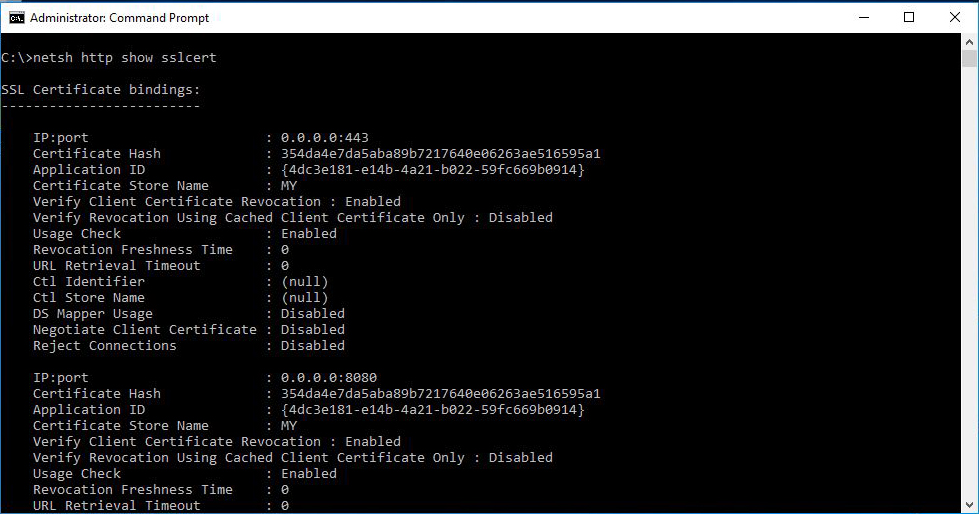Exchange Server Recipient Type Values for MSExchRecipientTypeDetails Active Directory Attribute
There are many times where I need to get the type of an exchange recipient but all I have is Active Directory access and not Exchange. A typical scenario is during a migration where you may only have AD access for MIM to sync the directories.
How are we going to get the exchange recipient with only AD access? Using the MSExchRecipientTypeDetails Active Directory attribute. Below is the table with the possible values for that attribute.
In case you have to connect to a remote Active Directory, you may find the Find-LDAPObject function from the S.DS.P module extremely helpful since it will allow you to make any kind of queries.
PS: The table above is a copy from this msexchange.org article.
How are we going to get the exchange recipient with only AD access? Using the MSExchRecipientTypeDetails Active Directory attribute. Below is the table with the possible values for that attribute.
| Object Type | RecipientTypeDetails | Value Name |
| User Mailbox | 1 | UserMailbox |
| Linked Mailbox | 2 | LinkedMailbox |
| Shared Mailbox | 4 | SharedMailbox |
| Legacy Mailbox | 8 | LegacyMailbox |
| Room Mailbox | 16 | RoomMailbox |
| Equipment Mailbox | 32 | EquipmentMailbox |
| Mail Contact | 64 | MailContact |
| Mail User | 128 | MailUser |
| Mail-Enabled Universal Distribution Group | 256 | MailUniversalDistributionGroup |
| Mail-Enabled Non-Universal Distribution Group | 512 | MailNonUniversalGroup |
| Mail-Enabled Universal Security Group | 1024 | MailUniversalSecurityGroup |
| Dynamic Distribution Group | 2048 | DynamicDistributionGroup |
| Public Folder | 4096 | Public Folder |
| System Attendant Mailbox | 8192 | SystemAttendantMailbox |
| System Mailbox | 16384 | SystemMailbox |
| Cross-Forest Mail Contact | 32768 | MailForestContact |
| User | 65536 | User |
| Contact | 131072 | Contact |
| Universal Distribution Group | 262144 | UniversalDistributionGroup |
| Universal Security Group | 524288 | UniversalSecurityGroup |
| Non-Universal Group | 1048576 | NonUniversalGroup |
| Disabled User | 2097152 | DisabledUser |
| Microsoft Exchange | 4194304 | MicrosoftExchange |
| Arbitration Mailbox | 8388608 | ArbitrationMailbox |
| Mailbox Plan | 16777216 | MailboxPlan |
| Linked User | 33554432 | LinkedUser |
| Room List | 268435456 | RoomList |
| Discovery Mailbox | 536870912 | DiscoveryMailbox |
| Role Group | 1073741824 | RoleGroup |
| Remote Mailbox | 2147483648 | RemoteMailbox |
| Team Mailbox | 137438953472 | TeamMailbox |
In case you have to connect to a remote Active Directory, you may find the Find-LDAPObject function from the S.DS.P module extremely helpful since it will allow you to make any kind of queries.
PS: The table above is a copy from this msexchange.org article.


